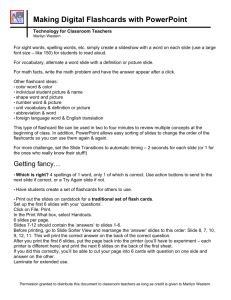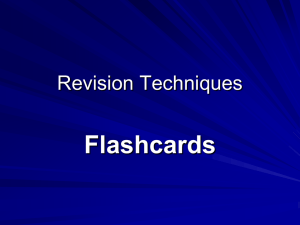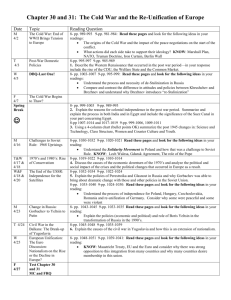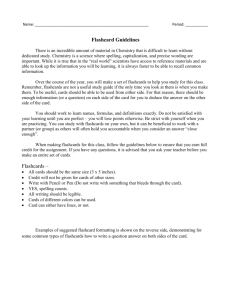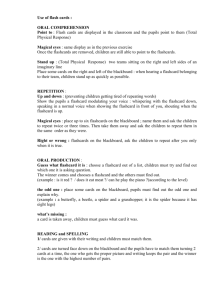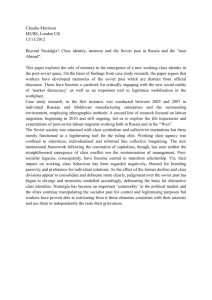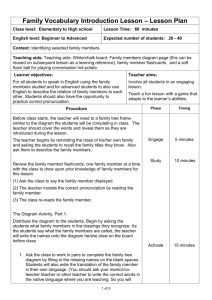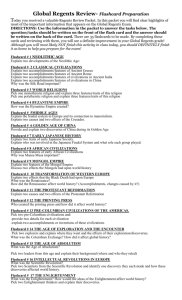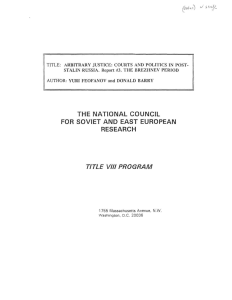European History AP/ Miller Summer Assignment 2015
advertisement
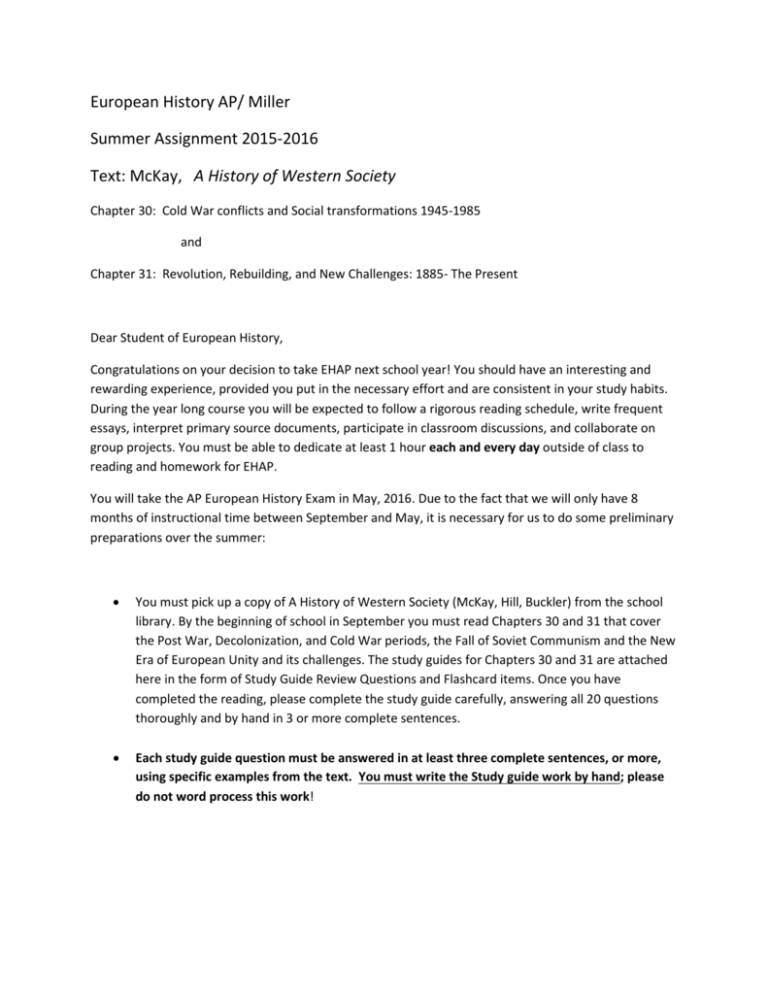
European History AP/ Miller Summer Assignment 2015-2016 Text: McKay, A History of Western Society Chapter 30: Cold War conflicts and Social transformations 1945-1985 and Chapter 31: Revolution, Rebuilding, and New Challenges: 1885- The Present Dear Student of European History, Congratulations on your decision to take EHAP next school year! You should have an interesting and rewarding experience, provided you put in the necessary effort and are consistent in your study habits. During the year long course you will be expected to follow a rigorous reading schedule, write frequent essays, interpret primary source documents, participate in classroom discussions, and collaborate on group projects. You must be able to dedicate at least 1 hour each and every day outside of class to reading and homework for EHAP. You will take the AP European History Exam in May, 2016. Due to the fact that we will only have 8 months of instructional time between September and May, it is necessary for us to do some preliminary preparations over the summer: • You must pick up a copy of A History of Western Society (McKay, Hill, Buckler) from the school library. By the beginning of school in September you must read Chapters 30 and 31 that cover the Post War, Decolonization, and Cold War periods, the Fall of Soviet Communism and the New Era of European Unity and its challenges. The study guides for Chapters 30 and 31 are attached here in the form of Study Guide Review Questions and Flashcard items. Once you have completed the reading, please complete the study guide carefully, answering all 20 questions thoroughly and by hand in 3 or more complete sentences. • Each study guide question must be answered in at least three complete sentences, or more, using specific examples from the text. You must write the Study guide work by hand; please do not word process this work! • • Note: Pace yourself. This assignment is not meant to be completed at one sitting, and should not be put off until just before school starts! You should allow at least 15 hours for the entire assignment, including the reading, and you should break it up into palatable chunks of one to two hours at a time over many days. Please do not try to do the entire reading in one sitting! You should make a list of words that are unknown to you, but you should only look up a word if it appears more than once or is crucial to the understanding of the reading. In other word you may “read around” many of words that you don’t know, but make a note of which words they are for future clarification. (Many of these will be SAT type words that you will learn over the next year!) All of your work will be checked and is due on the first day of class during the last week of August! Part A: Reading Chapters 30 and 31. Complete the reading, then move on to parts B and C, questions and flashcards. Part B (Study Guide review Questions) requires that you answer 19 Review questions thoughtfully. Write your answers to the the 19 review questions on a separate sheet of paper, legibly. The questions are here, below: 1. Describe the dispute between the United States and Russia at the end of the war. How and why did it escalate into a cold war? 2. Why were the Teheran and Yalta conferences important in shaping the map of postwar Europe? 3. How did Europe accomplish economic recovery after the war? What factors contributed to its growth? 4. Describe the steps taken toward European economic unity. What impact does this unity have on the European and world economy? 5. Describe the circumstances surrounding Khrushchev's famous Twentieth Party Congress speech in 1956. What were the results of his policy/? (Think Hungary..) 6. Describe life in the Soviet Union after 1964. What were the positive and negative features of the Soviet state in the Brezhnev era? 7. "Postwar domestic politics in the United States consisted largely of making modest adjustments to the status quo." Why was this so? 8. What were the milestones in the civil rights revolution? 9. What changes have taken place in the European class structure since the war? Does greater or less mobility exist? Has the distribution of income remained the same? Do you think these changes are an accident, or are they the results of government policy? 10. What is meant by the “re-Stalinization” of the Soviet bloc and the Soviet Union? Did a true ReStalinization occur? Why or why not? 11. Discuss the Solidarity movement in Poland in terms of origins, objectives, and outcome. What is so politically ironic about the situation? 12. What were the motives and the plans of Gorbachev? Why did he topple from power? 13. Describe what happened to the Soviet Union under Boris Yeltsin. Do you consider Yeltsin a success? What were the causes of German Reunification? How was it tied to events in the Soviet Union? 14. 15. Describe the "new global economy" model that most European states began to follow in the 1990s. 16. Were the new states of Hungary, Poland, and the Czech Republic successful in the 1990s? Explain. 17. What happened in the former Yugoslavia to cause its civil war? How did the Ottoman History of portions of the former Yugoslavia determine the lines of conflict? How was it dealt with by the outside world? (Mention Clinton, Dayton Accords) 18. In what ways had the European Union moved toward economic unity? Why have some people opposed this? Give specific examples. .(ie: Maastricht 1992). 19. Is there such a thing as “European Culture” that is different from the local and national cultures that exist throughout Europe? Explain 20. What do you think are Europe’s current and future challenges? Part C: Terms to Learn/flashcards requires that you make a flashcard for each of the key concepts and terms (“Decolonization” to “ Osama Bin Laden). Use as few words as possible to give as much information as possible. (Who? What?, Where?, When?, Why important?) Make a flashcard for each of the key concepts and terms. When you are done making the flashcards, put them in small piles, with other cards that relate to them by topic and event. For example: the cards “Dubcek” “Prague Spring 1968” and “Socialism with a Human Face” are related and should be seen together. Study them in this way, fleshing out the possible connections in your mind and arranging the cards accordingly. The most closely related cards should be right next to each other, etc. During the first week of class there will be a flashcard quiz, where you will be challenged to prove that you have learned all of the flashcards! The 65 Flashcard items are below in no particular order: decolonization neocolonialism European Steel and Coal Community Brown vs. Board of Education Martin Luther King Warsaw Pact Organization of European Economic Cooperation Marshall Plan Common Market (EEC) Taft-Hartley Act Franklin D. Roosevelt Josip Tito Johnson's "War on Poverty" Nikita Khrushchev Simone de Beauvoir Betty Friedan Charles de Gaulle Tet Offensive Brezhnev Doctrine "Socialism with a human face" Détente Space Race Sputnik cold war Truman Doctrine Hungarian Revolt of 1956 Prague Spring, 1968 Dubcek Willy Brandt Leonid Brezhnev Chiang Kai-shek Teheran (November 1943) Yalta (February 1945) Potsdam (July 1945) Berlin Airlift of 1948 Schuman Plan (1950) Civil Rights Act of 1964 Bay of Pigs invasion (1961) Cuban Missile Crisis Gdansk Agreement of 1980 Single European Act of 1986 Maastricht Treaty of 1990 Paris Accord of 1990 "Polish miracle" of 1980 Solidarity De-Stalinization OPEC economic nationalism "brain drain" NATO British Labour Party perestroika glasnost Mikhail Gorbachev Boris Yeltsin Lech Walesa Nicolae Ceausescu Bill Clinton Helmut Kohl Saddam Hussein Slobadan Milosevic Francois Mitterand Jacques Chirac Osama Bin Laden
